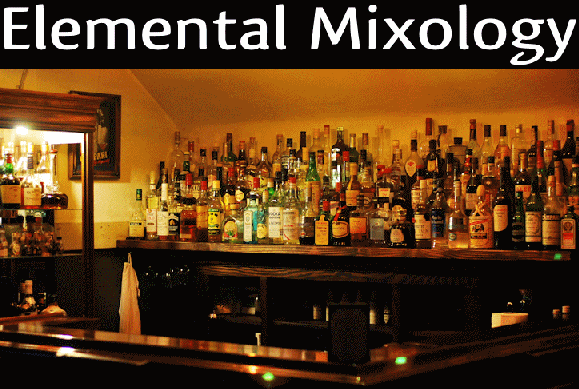So, there has been talk about the Marguerite Cocktail in Stuart’s Fancy Drinks from either 1896 or 1904.
I do not have access to a copy of this book, but I suspect some confusion is at work here.
As an example, the edition of Harry Johnson’s Bartender’s Manual that is being sold as a reprint of the 1882 edition is actually the 1888 edition. On the title page, one can plainly read:
Entered According to Act of Congress, in the Year 1882, by
HARRY JOHNSON,
In the Office of the Librarian of Congress, at Washington, D.C.
and then just below that:
Entered According to Act of Congress, in the Year 1888, by
HARRY JOHNSON,
In the Office of the Librarian of Congress, at Washington, D.C.
Furthermore, every image plate in the book gives the copyright below it as being from 1888. But, this has not prevented some from claiming that recipes found in this edition are from 1882. They may be, but one would have to see the original 1882 edition to know for sure, and that book is not currently available.
So, when I read that the Marguerite Cocktail is found in a section titled “New and Up-to-Date Drinks,” and that the book was reprinted in 1904, I wonder if that isn’t coming from the 1904 edition and might not be found in the original 1896 edition.
Perhaps someone having access to the book will kindly check the title page for any reference to 1904.
If the Marguerite Cocktail was not to be found in the 1896 edition, then the earliest Marguerite Cocktail recipe would seem to be that found in Tim Daly’s 1903 book, Daly’s Bartenders Encyclopedia. In it he gives the recipe as:
Marguerite Cocktail
use a mixing glass
Half fill with fine ice.
2 dashes of orange bitters.
1 dash of orange curacoa. [sic]
½ wineglass of French vermouth. [1 fl-oz.]
½ wineglass of Plymouth gin. [1 fl-oz.]
Stir well with spoon, strain into a cocktail glass, twist a piece of lemon peel on top, and serve.
The one-to-one proportion and the presence of the Curaçao liqueur would be consistent with this recipe being older than Stuart’s two-to-one version without the liqueur.
At any rate, the rediscovery of Marguerite Cocktail has been hailed as a ‘missing link’ in the evolution of the ‘Martini.’ I wonder why we should force it to be a ‘Martini’ when it has its own name and identity. For comparison, look at the 1895 Martini Cocktail in George Kappeler’s Modern American Drinks or the 1891 Martini Cocktail in William Boothby’s American Bar-tender.
I think what happened was not evolution, but rather de-evolution. It seems that once there were so many similar drinks, bartenders and customers stopped bothering with all of their names, and misappropriated the ‘Martini’ name for anything made of gin and vermouth. Then, whichever one became most common was destined to be thought of as the ‘Martini’ by the masses. This all happened after the appearance of the Marguerite Cocktail. Now, we look at old books and project that devolved point of view onto authors and bartenders that never shared it.
If you are looking for the earliest recipe calling for dry gin and dry vermouth with no bitters (explicitly), stirred through ice, strained into a cocktail glass and garnished with an olive, look to the Gibson in Boothby’s 1908 book, The World’s Drinks and How to Mix Them.
If you are looking for the earliest recipe calling for dry gin, dry vermouth, orange additive bitters with no liqueur, stirred through ice and strained into a cocktail glass, it might turn out to be Boothby’s 1908 “Dry Martini Cocktail” recipe. He garnishes it with both twisted lemon zest and a pickled green olive. Even that drink is not the regular Martini Cocktail.


There was not an 1896 edition. That confusion arises because of the publisher’s filing date for second-class mailing with USPS appearing on the book’s title page. https://twitter.com/bibulous/status/619939332963463168 There was, however, a book of a substantially similar (distinctive) title published in 1891 by the same publisher with a different author, J.E. Peck. The only surviving copy I've been able to learn of is in the special collections at NYU and I have reached out to a librarian there to see if I can learn more.
ReplyDeleteDetoxicated is a great way to prevent Asian flush. It’s natural and it helps with hangovers too. I get pretty severe Asian flush whenever I drink, and my brother recommended I take Detoxicated. It actually works to tone down the redness, and my hangovers have completely gone! Great product.
ReplyDelete